Posted on 5/24/2023

Memorial Day weekend marks the unofficial start of summer when many people hit the roads to enjoy a long weekend getaway. However, with increased traffic and congestion, it's important to prioritize safety during this busy travel period. Whether you're embarking on a long road journey or simply staying in the DMV area, here are some helpful tips to ensure you and your loved ones stay safe! Plan Your Trip in Advance You should look into following the most efficient and least congested routes to your destination. Plus, you should depart strategically. Leaving early in the morning or later in the evening can help you avoid peak traffic hours, especially getting around 66 and 495. Prepare Your Vehicle Before hitting the road, it's essential to ensure your vehicle is in optimal condition. We recommend scheduling a comprehensive maintenance check-up with your trusted auto repair shop. At our auto repair shop, we can inspect your ... read more
Posted on 4/30/2023
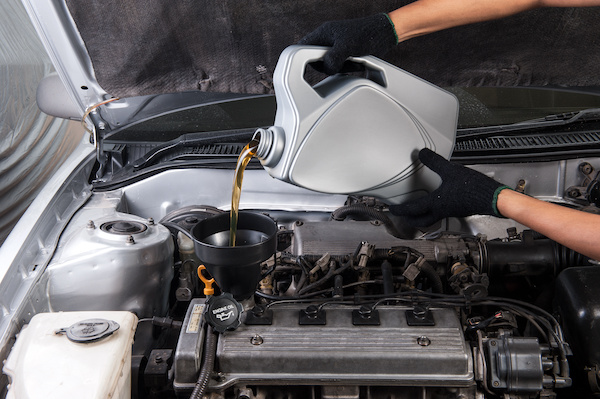
Regular oil changes are the most crucial maintenance task you can do for your car. This simple task keeps your engine in good shape and helps prevent unnecessary repairs down the road. But sometimes life gets busy, and it's easy to forget your last oil change. Here are some tips to help you never miss an oil change again. Why are oil changes important? Oil is the lifeblood of your car's engine. It lubricates the moving parts, absorbs heat, and keeps the engine clean. Over time, oil breaks down and becomes less effective, which can lead to engine damage or even failure. Regular oil changes ensure that your engine has clean, fresh oil to keep it running smoothly. Tips to Never Miss an Oil Change Keep a maintenance log. One of the easiest ways to keep track of your oil changes is to keep a maintenance log in your car. Every time you get an oil change, write down the date, mileage, and type of oil used. Keeping tabs on the service dates will help you remember w ... read more
Posted on 3/27/2023
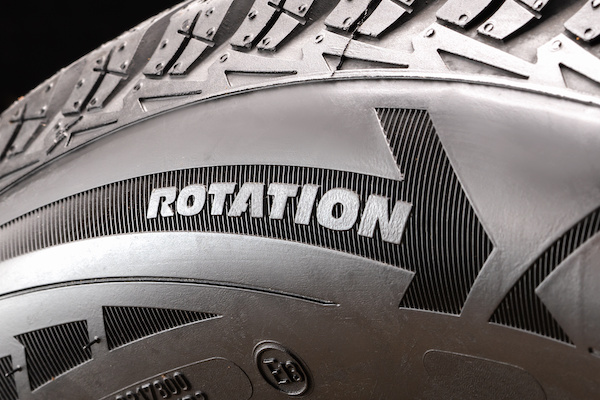
Tires are an essential component of any vehicle, and they require regular maintenance to keep them performing their best. One of the most important maintenance tasks for tires is rotation, which involves changing their position on the vehicle to ensure even wear. But how often should you rotate your car tires? The general rule of thumb for tire rotation is to have it done every 5,000 to 7,500 miles. However, this can vary depending on your driving habits and the type of vehicle you have. Here are some factors to consider: Driving Habits If you regularly drive on rough roads or make sharp turns, your tires may wear out faster and require more frequent rotations. Additionally, if you frequently carry heavy loads or tow a trailer, this can put extra strain on your tires and also require more frequent rotations. Vehicle Type Different cars have different weight distributions and tire arrangements, which can affect how often you need to rotate your tires. F ... read more
Posted on 2/28/2023
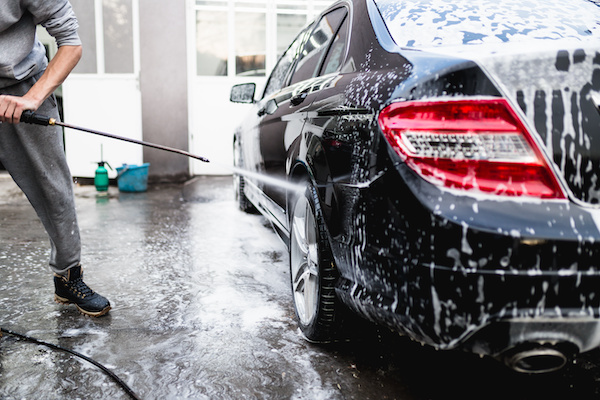
Keeping your car looking new and fresh is not only aesthetically pleasing but also adds to its longevity. While getting a car wash is necessary, not all car wash services are created equal. Some may use strong detergents that may harm your car's paint or simply overlook areas that require cleaning. You may be wondering how to clean your car from home, and the good news is that it is pretty easy. Follow these tips to keep your car looking good as new! Materials you'll need: Hose Bucket Car soap Wash mitt or sponge Drying towels or chamois Step-by-Step Guide Start by thoroughly rinse your car with water to remove any loose dirt or debris. This helps to avoid any scratches that may be caused by rubbing loose dirt particles into the paint during washing. Next, fill up a bucket with water and add car soap. Make sure to use soap that is specifically formulated for car washing, as other soaps or detergents can strip away the protective wax coating of your car ... read more
Posted on 1/26/2023
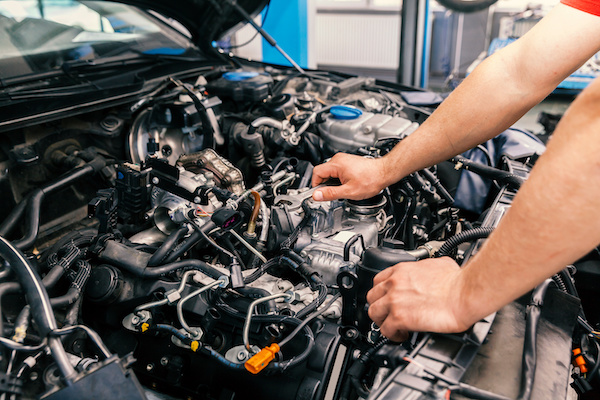
When you properly take care of your vehicle and its engine, it should run with minimal noise. On the other hand, engine sounds or knocking (a common term to describe the noise) can mean your vehicle’s motor is headed for disaster. Knocking is one of the first signs that you can detect to avoid further engine damage. Here is what your engine knocking may mean: Wrong Octane-Level Gas You may notice the engine knocking when you put the wrong fuel in your vehicle. Every car has a specific octane level of gas that it should burn. If your automaker recommends premium fuel, please do not fill up with regular. You should always follow the manufacturer’s recommendations when it comes to gasoline octane levels. Poor Timing Engine timing also plays a pivotal role in overall engine performance. Your vehicle’s onboard computer controls when each spark plug should fire. If the sequence of events is off, it can cause your engine to knock. Engine knocking can also occu ... read more
Posted on 12/30/2022
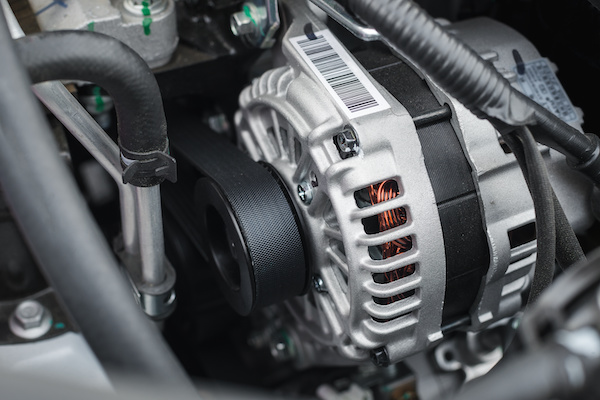
If your car simply does not start, there can be several reasons it won't start. A worn-out battery, a damaged starter, corroded connection cables, or a bad alternator could cause this issue. Here are a few ways you can tell why your car is not starting. Signs that You Have a Bad Battery If your car will not start on cold mornings and the engine sounds sluggish, then the battery is probably to blame. Usually, when the battery is close to exhausted, the car will barely make any sound, and the interior lights will also fail to come on. Sometimes it is not the battery itself that is dead, but some damaged or corroded wires might come loose, undermining power transfer from the battery to the car. If your battery has visibly damaged terminals or wires, it is probably too far gone to save, so it's time to buy a new one. Using a visibly damaged battery increases your chances of getting stranded at inopportune times because the battery will only get more damaged. Another way to tell ... read more
Posted on 11/30/2022

Whether you’re a newcomer or an old-timer in the DMV area, you know that our winters can be quite unpredictable. The weather can be harsh with lower temperatures, freezing rains, and the occasional snow. To keep your car, SUV, or truck in tip-top shape wherever you go this winter, make sure to read on to learn these fantastic maintenance tips. Newer problems tend to arise as the seasons change here in Alexandria. Some common problems drivers face in the winter include tough starts and heater problems. Below are some of our top tips to combat winter driving: Tip #1: Test Car Battery If your battery is several years old, now would be the perfect time to check it out. The freezing temperatures can get your battery and leave it drained completely. Inspect it for signs of corrosion and damage. If it can no longer hold a proper charge, it is best to replace it altogether. Tip #2: Keep Your Windshield Clean Visibility becomes even more important this time of year. With less dayligh ... read more
Posted on 10/31/2022
.jpeg)
Sure, it can be quite ugly! However, car rust greatly affects more than your vehicle's appeal. Besides eating away and destroying the structure, it can eventually creep into the engine bay and cause performance problems. Moisture is one of the most common causes of vehicle rust, mostly from continued exposure to precipitation and snow. Your vehicle can also get rusty if it is not properly maintained, covered, and due to old age. Prevention is everything. If you ignore the rust and allow it to settle in, it might become a nightmare, impossible to eliminate. Here are some top tips for vehicle owners who want to keep their vehicles rust-free: Wash and Wax Too much dust and dirt can translate to a quick accumulation of rust. Therefore, you must wash your vehicle at least once weekly, regardless of the season. Wax it with top-quality wax every four months to protect it from contaminants. Contaminants stick on the vehicle's surface, causing openings in the car paint and allowing i ... read more
Posted on 9/28/2022
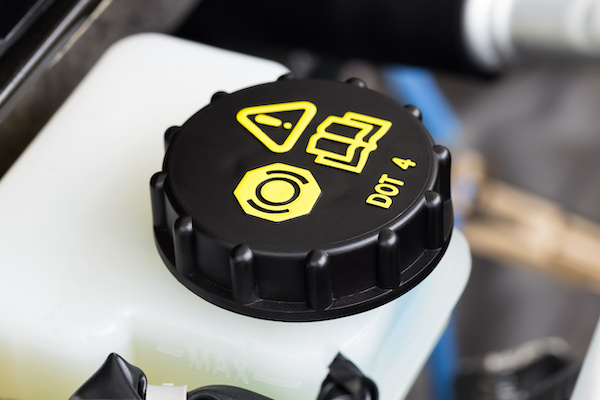
If your car, SUV, or truck has a hydraulic braking system, then the safety of your vehicle is highly dependent on brake fluid. Without the pressure provided by the brake fluid, the brake pads, calipers, and brake pedals would not be able to work together to slow down your vehicle. Low brake fluid is a major safety concern and can even mean there is a leak or moisture build-up in the system. Unlike motor oil or transmission fluid, brake fluid is not consumed. Typically, you can detect low brake fluid by looking at it under the hood. Brake fluid is a clear, yellow color and sealed in a transparent reservoir. However, you may be able to tell if your car is running low on brake fluid with the following signs: Brake or ABS Light Illuminated Most vehicles nowadays are high-tech enough and have brake sensors that relay information to the onboard computer. Hence, the brake light may turn on when it detects low levels of brake fluid. Soft Brake Pedals You can tell if th ... read more
Posted on 8/29/2022
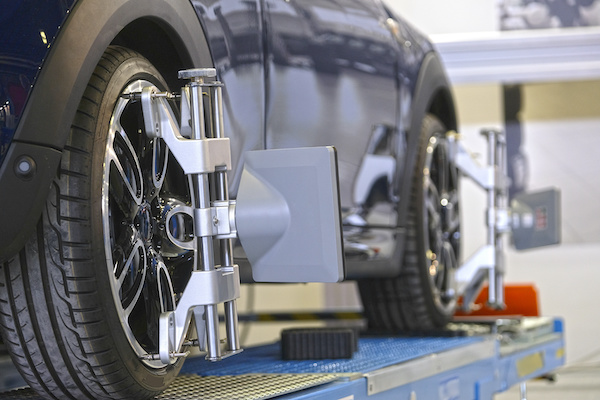
A wheel alignment service corrects your wheel’s angles to have them pointing in the right direction. There are many reasons why your car’s tires can lose their alignment. While it may not seem dangerous to you now, misalignment can create costly and extensive damages. Every automaker has alignment specifications depending on the model and size of the vehicle. When your car’s wheels are knocked out of alignment, your tires won’t grip the road properly. Therefore, your vehicle’s handling and performance will be negatively impacted. Additionally, it will wear down your tires unevenly and prematurely. What Causes Tires to Lose Alignment Wheel alignment intervals can vary depending on your vehicle, driving conditions, and tires. Road Impacts: If you frequently ram into curbs, run into potholes, and speed over road bumps, don’t be surprised if your wheel alignment is off. These impacts, minor or major, can throw your vehicle’s wheel ... read more